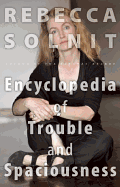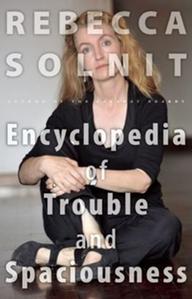

Solnit (The Faraway Nearby), a winner of the National Book Critics Circle Award for Criticism, leaves no doubts about her political perspective, which infuses many of these pieces: "I come from the left, and my task is clearly telling the other, overlooked histories of hope, popular power, subversion, and possibility." From that vantage point, she reserves some of her strongest scorn for "neoliberals," inveighing against their "tendency to create elite private solutions and let the public sphere go to hell," citing the buses that transport Google employees from San Francisco to the company's Mountain View campus as but one example. Proudly describing herself as a "public citizen" who mourns Americans' retreat from that arena, she's a fierce advocate for direct democracy and communitarianism, exemplified for her in movements like Occupy Wall Street or the patient revolution of Mexico's Zapatistas.
Reflecting that philosophy, Solnit is a connoisseur of stories about communities attempting to recover from disaster--manmade or natural--such as Detroit, Haiti, New Orleans and Japan. Without ignoring the suffering residents of those places have endured, she prefers to focus on the hope they've managed to salvage from the wreckage. "Even when the losses were terrible," she writes, "the ways that people came together to meet the occasion were almost always inspiring."
Some of the strongest pieces in this collection focus on environmental issues. "Winged Mercury and the Golden Calf," an account of the depredations of the California Gold Rush, finds an unsettling echo in today's Marcellus Shale boom in the Northeast United States. In "Oil and Water," she rejects the benign term "spill," opting instead to refer to the "blowout" at BP's Deepwater Horizon drilling rig that poured millions of barrels of oil into the Gulf of Mexico in 2010.
In its best moments, Solnit's writing is every bit as strong as the work of Joan Didion and Annie Dillard, as when she describes Iceland as a "harsh, beautiful rock dangling like a jewel on a pendant from the Arctic Circle," or seamlessly weaves Martha Stewart, James Joyce and the Odyssey into a meditation on shelter and materialism. Often startling and always original, this book showcases the work of an impressive intellect and a brilliant writer. --Harvey Freedenberg, attorney and freelance reviewer
Shelf Talker: Rebecca Solnit's 30 beautifully written and fiercely argued pieces range over subjects as varied as the 2011 Japanese earthquake/tsunami, the BP oil disaster and the ills of global capitalism.

